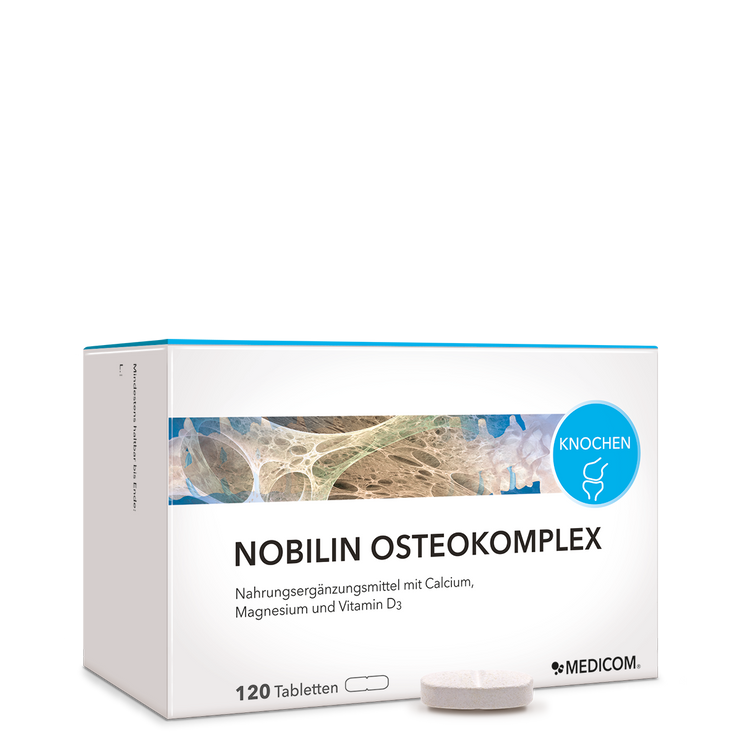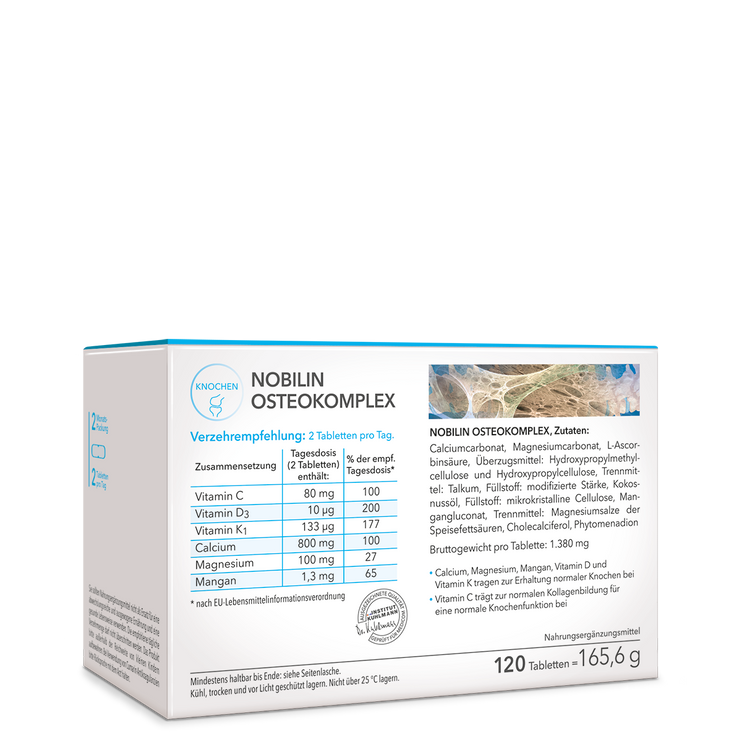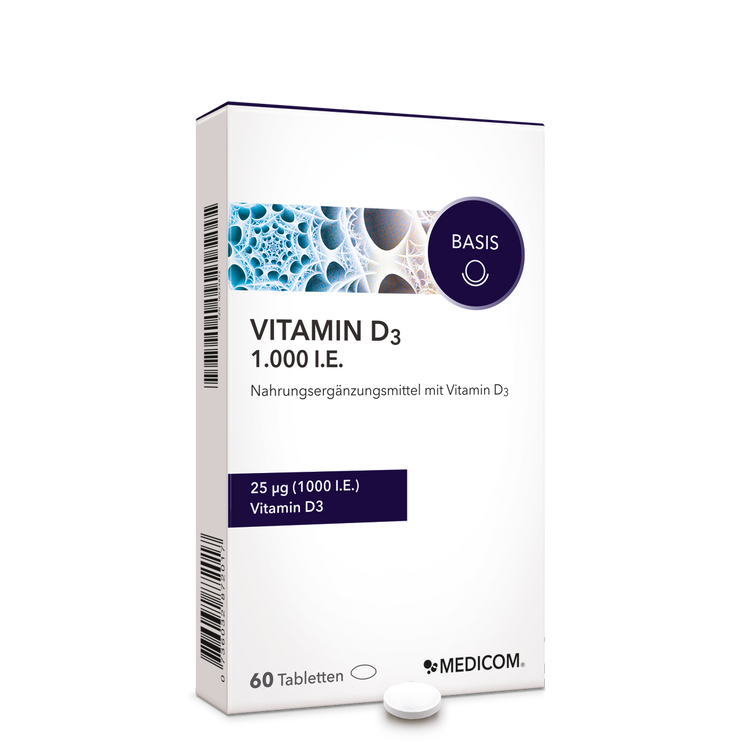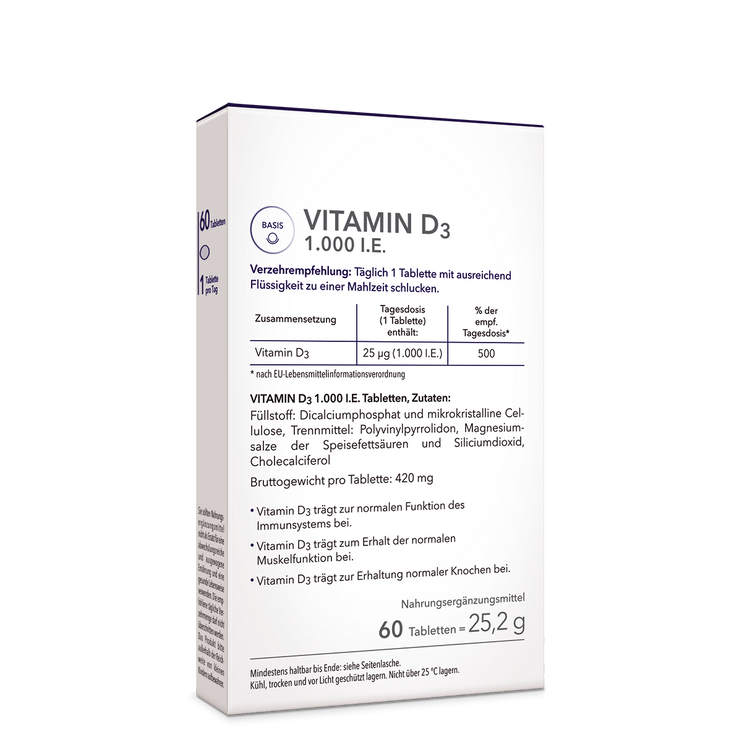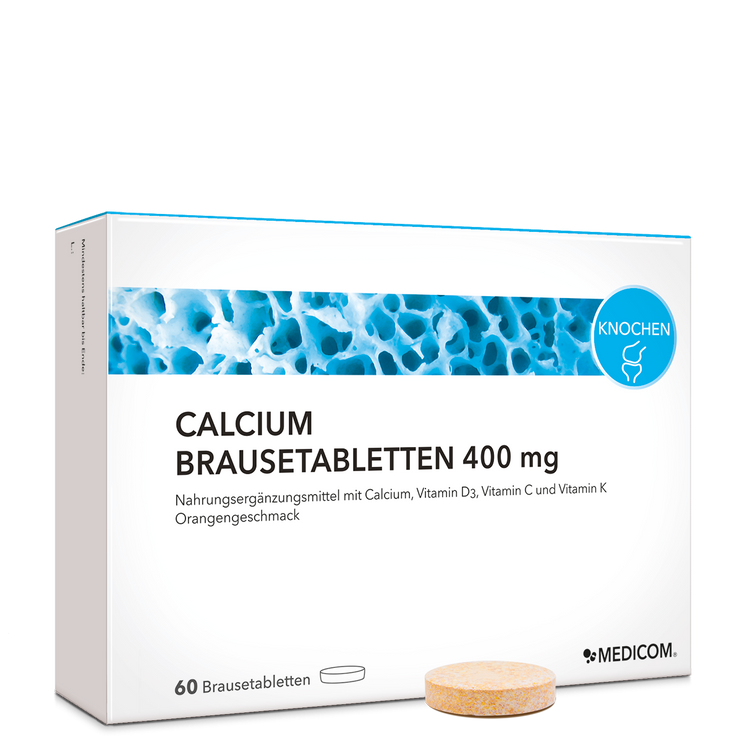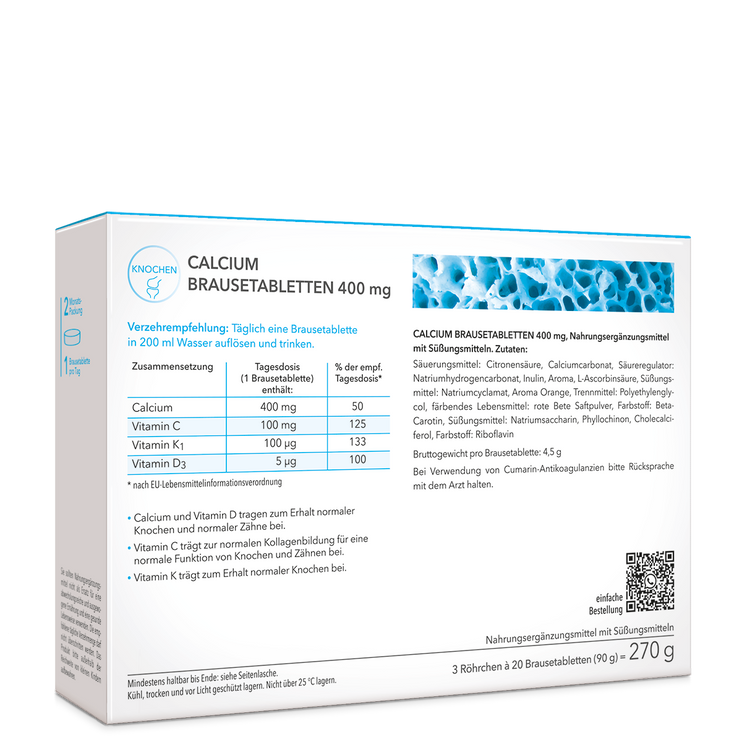Vitamin D3 is a vital vitamin that is involved in numerous metabolic processes and affects our well-being in many ways. It supports themental health, prevents rickets in infants andmainly stabilizes the bonesThe human body can produce vitamin D3 itself through the skin. However, since the sun is usually too low in the sky, especially during the dark season, to stimulate the skin sufficiently with UVB radiation to produce the "sun hormone", a deficiency often occurs.
What functions does vitamin D3 perform?
Vitamin D3 (cholecalciferol) is not actually a vitamin but the bioactive variant of the prohormone vitamin D. It plays a crucial role in calcium metabolism and is essential for building and maintaining strong bones and teeth. Vitamin D3 causes theCalcium and phosphate absorptionfrom the intestine. It increases the mineralization of the bones and canspecifically prevent osteoporosis.In addition, vitamin D3 is a central component of humanImmunity.A sufficient supply of vitamin D3 is one of the prerequisites for the organism to mobilize effective defense cells in the event of infections with viruses, fungi or bacteria.
Use of vitamin D3?
Around 80 percent of the vitamin D3 in your body is formed by exposure to sunlight on thebare skinIn summer, this value can even be around 100 percent, but in the winter months it is usually significantly lower. An adequate supply of vitamin D3 is important all year round, as it plays a crucial role in calcium metabolism and the immune system. Researchers at Georgia State University* were also able to prove a connection between vitamin D deficiency and depression. According to their study, people with a vitamin D deficiency are 85 percent more likely to suffer from depressive illnesses. However, it is not yet clear whether the depression is the result or the cause of the vitamin deficiency.
Which foods contain vitamin D3?
Cod liver oil or fish oil has a high concentration of vitamin D3. Fish and seafood such as eel, salmon, herring and mussels also contain a lot of vitamin D3. Porcini mushrooms, chanterelles and button mushrooms are also rich in the active ingredient.
Am I lacking vitamin D3?
If at least one of the following applies to you, a supplemental intake of vitamin D3 could be useful for you:
You hardly get any sun, e.g. because you are bedridden?
Do you often feel tired after a tough winter?
Does your clothing limit the amount of sun you get on your skin?
Do you eat almost exclusively plant-based food or is your diet very unbalanced?
Are you of advanced age?
Do you have a dark complexion?
Are you going through menopause?
Do you take antiepileptic drugs?
Do you suffer from celiac disease, Crohn's disease or nephrotic syndrome?
What should I consider when taking vitamin D3?
Negative effects from an overdose are only known at very high doses (40,000 IU, which corresponds to 1000 µg per day). Since vitamin D3 is responsible for calcium absorption from food, a large amount can lead toHypercalcaemia(excessive calcium intake) or hypercalciuria (increased excretion of calcium in the urine). High doses of vitamin D and a poor supply of vitamin K2 can also lead tofunctional K2 deficiencyTherefore, when taking vitamin D supplements, always make sure you have a good supply of vitamin K.
